#Queen Morwen of Rohan
Explore tagged Tumblr posts
Note
I hear you are in a Theodred mood?👀 I was wondering if you have any headcanons you'd like to share about him? Or even what you enjoy about writing him?
6 SotWK AU Facts About Théodred
(that I'm looking forward to exploring in my upcoming Rohan WIP)
Théodred is not an only child. He had an older sister. That's right--Idis, daughter of Théoden, exists in the SotWK AU! She was the biggest influence in Théodred's life, the person he loved most. Sadly, Idis passed away from illness when he was just 11 years old, and this deeply affected him.
Théodred is a scholar first and a warrior second. He loves reading, and learned to write at a prodigiously early age. At the time of his death, he knew more about Rohan's histories than even the most experienced scholars in Edoras. He had to be forced by his father to dedicate more of his time to learning military skills.
Théodred is nearsighted, which makes him a poor marksman. As soon as he realized and accepted this deficiency, he focused his efforts on mastering close-quarter combat. He is considered one of the best swordsmen in Rohan.
Théodred values the tradition of shieldmaidens. He pushed for the training of his young cousin Eowyn despite the objections of both Théoden and Éomer. He is the patron and mentor of the shieldmaiden OC in my fic "Taken", and its WIP sequel.
Théodred was nearly betrothed to Lady Morwen, daughter of Hurin of Gondor, in a political match encouraged by their fathers. Ultimately, Théodred declined the engagement, unable to tolerate Morwen's condescension towards Rohan and her ideas (however well-intentioned) about "improving" Rohirrim culture.
Although he did wish to marry and have children, Théodred struggled to find the right woman to settle down with. He felt overwhelmed by his own high standards and the pressure of finding not just a wife, but a Queen who would love and serve Rohan as much he did.
In my head, Théodred is a magnificent character, and it would be a joy and honor to write more about him. (I say as I battle against this dreadful writers' block.)
Bonus headcanon: Théodred is HOT. (Thank you, Charlie Hunnam.)

I'm so happy to be receiving such great Asks from you again, Ace! <3 Thank you for the chance to gush about this man!
#sotwk answers#i have the best mutuals#theodred#rohan#rohirrim#eomer#lord of the rings#theoden#lotr#sotwk headcanon#sotwk ocs
34 notes
·
View notes
Note
Here’s one for thoughts now, later or never, depending on how you feel about it…
Got any headcanons or opinions about the 3 sisters of Théoden who weren’t Théodwyn??? What they were like, where they were during the events that we’re all familiar with, what their relationship with Théoden was like, etc.? It’s bonkers to me that we know they exist and that he preferred Théodwyn to the other sisters but that’s. literally. it!
Omg what a good question! Thank you for leading my thoughts in that direction. There is SO MUCH to unpack there, and even more to imagine, because as you said Tolkien left us a lot of room there (euphemism of the month). I will allow myself to add Morwen Steelsheen to this reflection, because I think it makes sense to link her to her daughters, and similar questions arise around her character.
But I’m a scientist, so let’s think about this rationally and stay organized. I will answer in four parts (I’m not sorry about it)
1. What the canon actually says 2. What are the possibilities, what must be ruled out and why 3. Why I will NOT be going there with my current WIP pHORSEuasion 4. Freeform headcanons I still have on this matter!
Part 1: Deep dive in the canon
Most of what we know about Thengel’s family comes from a couple paragraphs in Appendix A. I have laid out this information in a timeline, with the following assumptions, which can be contested, but that’s what I chose to work from: -Only one child is born per year -There are no twins in the family -The first child of a couple is born at earliest one year after their wedding -Ages given assume a birthday on January 1st. If the actual birthday happens after the event in the calendar year, the character would technically be one year “younger”
2905: Thengel born in Rohan 2922: Morwen born in Gondor 2943: Thengel (age 38) and Morwen (age 21) marry in Gondor Between 2944 and 2947: First daughter born in Gondor 2948: Théoden born in Gondor Between 2949 and 2953: Second daughter born in Gondor 2953: Thengel (age 48) becomes king of Rohan Between 2953 and 2962: Third daughter born in Rohan 2963: Théodwyn is born in Rohan. She is described as “a child of his (Thengel's) age” (Thengel is then 58 and Morwen is 41). 2977 or before: Théoden (age 29 or less) and Elfhild (age unknown) marry in Rohan 2978: Théodred born in Rohan. Elfhild (age unknown) dies 2980: Thengel (age 75) dies. Théoden (age 32) becomes king of Rohan 2989: Théodwyn (age 26) and Éomund (age unknown) marry in Rohan 2991: Éomer born in Rohan 2995: Éowyn born in Rohan 3002: Éomund (age unknown) and Théodwyn (age 39) die. Éomer is then 11 and Éowyn is 7 3017: Éomer becomes Third Marshal (age 26) 3019: Théodred (age 41) and Théoden (age 71) die. Éomer (age 28) becomes king of Rohan. Éowyn (age 24) and Faramir (age 36) marry in Rohan 3020 or later: Elboron, son of Éowyn and Faramir, born in Gondor. 3021: Éomer (age 30) and Lothiriel (age 22) marry Early Fourth Age: Elfwine, son of Lothiriel and Éomer, born in Rohan. Fourth Age 63: Éomer (age 91) dies Fourth Age 82: Faramir (age 120) dies
Therefore, we have at the start of the War of the Ring, let’s say in January 3019: Definitely alive: -Théoden -Théodred -Éomer -Éowyn
Possibly alive (no canonical death): -Morwen (age 97, but she is of Dunedain descent, so a long life is possible) -Her three eldest daughters, with ages between 75 (if the eldest was born right after their parents' wedding, in 2944) and 57 (if the third daughter was born right before Théodwyn, in 2962)
A few extra notes on the canon
One thing that I had not fully realized before, is that Théodred is born and Elfhild dies when Théoden is not yet king. Therefore: -Thengel technically met Théodred (he was 2 years old when his grandfather died) -Elfhild, although Théoden's wife, was never queen of Rohan -When Lothiriel becomes queen, Rohan has not had a queen since Morwen, 41 years earlier, at the death of Thengel in 2980 -Théodwyn was only 15, or going on 15, at that time. (I know that I have read somewhere the headcanon that she cared for Théodred from his birth, which is valid and possible, however in my opinion her age makes it doubtful that she would have been the main carer and parental figure.) -Théoden ascends to the throne whilst bearing not only the immediate grief of his father, but also the relatively recent (2 years) loss of his wife.
Of Théodwyn, we know that she was “the fairest” and “her brother loved her dearly”. After her husband was killed, she “took sick and died to the great grief of the king”. Théoden then “took [her children] into his house, calling them son and daughter”.
And we learn a little about Morwen when Éowyn is described: “Éowyn was slender and tall, with a grace and pride that came to her out of the South from Morwen of Lossarnach, whom the Rohirrim had called Steelsheen.” (I must say that I am questioning this past perfect “had called”. It sounds like Morwen is not there anymore, otherwise past simple “called” would have been used. But then, it is hard to pinpoint when in time the narrator is placing themselves in this passage. If referring to Éowyn’s early adult life, it would be a clue in the direction that Morwen is not alive anymore by the War of the Ring, or at least that she is not in Rohan anymore. If referring to an undefined point at the moment of writing in the Fourth Age, it means nothing at all. But we’re now at the level of microscopic details from the text!)
Part 2/4 coming eventually in a reblog!
#lord of the rings#rohirrim#Tolkien#answered asks#eomer#eowyn#theoden#theodred#morwen#rohan#thengel#theodwyn#elfhild
37 notes
·
View notes
Note
Okay here I am again because the Grima brainrot is particularly intense rn and I just saw a post talking about.
Grima but as a woman. Like genderbend. Nothing changes, same looks, same personality, same behaviour, same ambiguous feelings for Eowyn. (I’d smash.)
I think it’s actually interesting considering that Grima’s flaws in the movies/books are hinted also to be rooted from his “unmanliness” (as Tolkien presents a lot of characters with honour and values considered “male”.)
But I think that even if he were to be a woman, there is a great deal of traits Grima wouldn’t possess to be considered conventionally “feminine” by Tolkien’s and many’s standards. (Such as beauty for example).
So yeah, it just occurred to me and now I’ve been thinking about this since 3am. This is the reason why I’m pansexual. We don’t care about gender. We care about silly evil pookies okay.
As always have a great day/night ! ^^
Yesssss!
Grima & Gender is a super interesting thing that I think about all the time. I love thinking about him and manliness, femininity, secret third and fourth options etc.
I know I reblogged the ask/reply that I had about Grima on Gender and Magic, so you have the gist of most of my thoughts as it relates to Grima performing gender (or not, as the case may be) within the context of masculinity.
But Grima straight up as a woman would be very interesting. Particularly because Rohan is quite gendered when it comes to the wielding of power - and quite binary in who wields what power.
(E.g., when Theoden departs Edoras to fight Saruman, he despairs over leaving the city leaderless because Eomer won't stay behind. It doesn't occur to him that Eowyn is even an option until Hama suggests it.)
Therefore, Grima being in a position of power that is traditionally masculine would be very interesting. Indeed, her entire performance of gender would likely be impacted by the uniqueness of her position. Queens, historically, were more passive in Rohan than in other countries so it's not like she would have someone to model herself on. Nor would there be a model for other people on how to receive and perceive Grima.
(Morwen, maaaaaybe, but honestly her epithet of Steelsheen is more about her appearance than anything else. Though perhaps her personality could be inferred from it... But truly, we only know her in the context of being wife and mother.)
Given the absence of models, would Grima into the more masculine aspects of how people would be reading her? Would she do the whole performance of "I may have the body of a woman but I've the head and heart of a man"? Or would she hyper-perform the femininity song and dance as a way to balance it out/make her more palatable to some?
Aside from the occupying a masculine position of power within the context of Rohan's society, Grima's other personality and physical traits would absolutely count against her being seen as appropriately feminine.
Good qualities for a Rohirrim woman to have is height, slenderness, fairness of face, and youthfulness. Grima's tall...and that's all she's got going for her.
Grima is also neither high-hearted nor noble in bearing let alone in birth (because nobility of birth is very important to one's perceived Goodness and Worth in Tolkien's world).
Grima is a sneak, a liar, a thief, and power hungry. Grima would be, fundamentally, a Woman Who Wants Something. And what she wants are things women shouldn't want.
Wanting Things in general, for both men and women, is a dangerous game to play in Middle Earth and the texts punish many of the people who do any major "unacceptable" desiring (or creating) of things outside their purview.
Grima's obvious foil, Eowyn, is a prime example. Eowyn wants to be a warrior, she wants to be queen, she wants to be part of the Gondor noble family (and assume the power and privilege that comes with that), she wants to be seen and heard and to have an impact on the fate of the world.
Some of her wanting was out of a selfless desire to save her home and her people, but a lot was also just her having dreams and desires.
Eowyn may have been named as Shieldmaiden of Rohan but it is evident that this was meant as an honorific that wasn't meant to be actually acted upon. Save, of course, in the gravest/most dire circumstances when all is lost and only women remain to defend the land because the men are dead. This is, indeed, the gist of the conversation she has with Aragorn and you can see her resentment and anger about what her expected role is to be compared to that of her brother and the other men in her life.
I think the fact that Eowyn reflects, in many ways, the ideal of womanhood is what saves her from being punished too hard. Eowyn is tall, fair, slender, young, high-hearted, daughter of kings, and has selfless and noble motives (alongside the more human ones).
She is allowed her transgression. She gets her great moment of battle against the witch-king. She gets to make her mark, to save people, to change history.
But, she also receives a bit of a personality transplant as a result of it. She gets to be a wife - but not a queen. She gets to be a mother who heals people. She gets to be a Proper Noble Woman and live, once again, in a gilded cage. The very thing she was so furious about initially.
I know there is the idea that she is healed and she has overcome her anger and has changed - but it still feels like the text punished her and robbed her. Of course, a huge part of the problem is that Eowyn is the only women we spend any real time with - if we had more women with diverse journeys and endings, it would be different.
It's subconscious to a certain degree, I think, also heavily informed by Tolkien's Catholicism alongside the culture of the time. The importance of the Marian archetype of womanhood etc. And we know Tolkien loved Eowyn's character and thought about her a lot, wanted to write a good story for her, but some of that stuff sneaks in regardless.
But all of this to say - if that is Eowyn's ending...what would happen to Grima? One who would be committing greater transgressions against gender performance let alone the whole Light Soupçon of Treason.
Because aside from wanting material wealth and power, we know that Grima potentially desires Eowyn. In the movie it's explicit but the books are more ambiguous. We are told, via Gandalf, that Eomer was concerned about Grima ogling his sister and threatened to kill him over it. Crucially, we never hear from Grima about this specific item and we certainly never hear from Eowyn.
Indeed, Gandalf's line to Eomer about how his sister is "safe now" says far more about Eomer's fears and concerns than it does about the reality of the situation. We know in ROTK that Eomer didn't know his sister's heart or mind - he didn't know she was unhappy with her position in the household and broader society, he didn't know she wa so angry and resentful, he didn't know she was in emotional pain, he didn't know what she wanted, he didn't know jack. Therefore can we think him reliable when it comes to being a fountain of knowledge about his sister's desires?
I mean...considering no one was paying much attention to her, and when they did they were reading their own things onto her (coughEomercough), perhaps Eowyn liked having Grima pay attention to her? Like, who knows. Someone who may have seen her and may have known what her fears and desires were might have been novel/nice (before she realized he's selling everyone out for a corn chip). Heck, Gandalf implies that Grima had a pretty good handle on Eowyn's innermost dreams and wishes, so take that as you will.
(I now have this image in my head of Eowyn and Grima getting wine drunk out back of Meduseld and bitching about people.)
All pure idle speculation for the sake of pot-stirring. Anyway, I keep getting distracted.
Grima as a woman feeling lust, though - that would be another strike against her. Honourable love and the implied desire that might exist because of it is fine. But in the text overt desire of a clearly sexual nature is presented in a mostly negative light. Let alone, in this speculation, Grima is lusting after another woman! That's even more unnatural and contrary! What a freak /sarcasm.
Then there's the cowardice - which is shown as a negative no matter who is displaying it. Though, I think of all the aspects of Grima, this is the one that would get more of a pass as a woman than as a man.
So yeah - given that Grima's entire personality is one that is contrary to what is modeled as Good Femininity it would be very interesting to see how it played out over the course of the text.
Everything from the banishment, which was predicated on Grima being expected to do battle alongside Theoden in order to prove that he is still loyal - what test of loyalty would Grima as a woman be expected to perform and then fail because she's too chickenshit?
The relationship with Saruman would be construed in a different way, also the hold Grima had over Theoden - that would take on different implications. And those implications would also change how Theoden is perceived, too, which is interesting.
That Theoden is leaning on a woman for support in ruling would make him seem even weaker and more foolish. It would be so interesting to see it unfold!
Then there's the rivalry with Gandalf - the positioning of them as two sides of the Odinnic coin.
Also the being tortured and tormented by Saruman after Helm's Deep. Not to mention the Scouring of the Shire and Grima's ultimate end. If Grima is a woman, in this, I think Tolkien would have had her ending be different.
----
Alright, I've banged on for way, way too long about this and went no where in particular, and all has been said before in different ways so I'm not landing on anything new or insightful.
Just wittering...I love wittering about Grima so thank you for giving me the opportunity to lol
<3 <3
22 notes
·
View notes
Text
weird Éothiriel AU:
Elphir, Erchirion and Amrothos all die either in the Battle of Pelennor fields or in the Battle of Morannon. (A great tragedy, obviously.)
In this version Elphir does not have an heir (Alphros).
Lothíriel at this time is already betrothed to marry the heir of Rohan (which recently was Théodred but is now Éomer).
There is too great political pressure for the union of Rohan and Dol Amroth and Éomer and Lothíriel take an instant liking to one another, so the marriage goes through even though Lothíriel is now Imrahil's sole heir and is sorely needed at home.
Éomer and Lothíriel are married and they have a brief happy time together in Rohan as king and queen.
Imrahil is so devastated by his loss that he gives up power, setting Lothíriel up as a regent.
Difficulties arise as Éomer and Lothíriel attempt to balance their duties between his kingdom and her fiefdom.
Thanks to Aragorn's passage through the Paths of the Dead, the road is now open, allowing swifter travel between Rohan and Dol Amroth - and Éomer and Lothíriel travelling between their two realms.
Political intrigue about Éomer being the princely consort in Dol Amroth, and Lothíriel being the royal consort in Rohan.
Also political intrigue about the fact that the father of future Princes of Dol Amroth is not pure-blooded Númenórean (despite the fact his grandmother is Morwen Steelsheen).
The friendship that is build upon horsemanship of the two realms.
Eventually Rohan and Dol Amroth become an insane powerhouse in Middle-earth, creating the greatest cavalry that ever existed.
16 notes
·
View notes
Text
Theoden's Sisters' Names
We know that Theoden had four sisters, including Theodwyn, Eomer and Eowyn's mother. We don't know what happened to them, but the fact they're never mentioned in the books, and that it seems with Theodred gone, Eomer and Eowyn are the last ones left in Theoden's family, suggests they died pre-canon.
As Theoden and Theodwyn's names start with the same prefix, I'm gonna guess that their sisters did too.
Theoden, Eowyn and Eomer's names are all "translations" of their proper Rohirric names (Theoden's name is actually Tûrac), into old English names, which is what I'm going to use to come up with names for Theoden and Theodwyn's sisters.
The oldest sister was called Theocwen
cwen: is old English for queen, or woman, and therefore an appropriate name for the oldest daughter of a royal house.
Theocwen was some years older than Theoden, and spent most of her life in Gondor and felt a strong connection to her Gondorean roots, and was most like her mother in grace and elegance. She struggled to settle to Rohan and married into a Gondorean noble house at only sixteen, in a bid to return home, but died in childbirth. Her parents regretted letting her marry so soon, believing that she had married a few years too young in order to return to Gondor, before she was fully ready.
The second daughter was Theodeor
deor: old Engish for wild animal. If any of Theoden's sisters was a shield maiden, or similar to Eowyn, it was Theodeor, who shared Eowyn's spirit and desire for freedom.
She was a keen hunter, and unlike her sister took to life in Rohan like a duck to water. She adored the legends of shieldmaidens and keenly took up the blade and the spear, and was the best rider of all the sisters, equalling Theoden himself. The two were close in age, and had a competitive relationship, which lasted long into adulthood.
She never married and enjoyed her single state (but took more than one lover.) She lived in Edoras with Theoden, and helped raise Theodred after his mother's death.
She was the longest lived of Theoden's sisters, and died in her fifty eighth year, a couple of years before Theodwyn's death, during a boar hunt.
She'd made a wager with Theoden as to who would be the one to deal the killing blow, and the winner was to have an ivory and gold hunting horn that belonged to Eorl the Young. She struck the killing blow to the boar, but the boar also got her in turn, goring her fatally in the belly.
She was taken back to Edoras, and lived long enough to remind Theoden of their wager. She died that night in Theoden's arms, and he buried her with the hunting horn.
Her final words were "well struck". No one knows if she was talking about herself or the boar.
The third sister was called Theofolde
folde: is Old English for earth or ground.
She was the first of Theoden's sisters to be born in Rohan, and Thengel and Morwen named her after the land in honour of their country. She was delivered early and was always frail, and in her youth she was often ruled by the more bold and energetic Theodwyn. She was Thengel's favourite child, who doted on her, while Morwen kept her distance, having suffered a great deal in her birth, and suspecting from the start that Theofolde didn't have long for the world.
Theofolde loved foals, and farming, and liked accompanying Thengel when he met with the farmers to hear their petitions, or rode out to inspect their land. She had dreams of marrying a farmer, and living a quiet life dedicated to the earth. She died in her thirteenth year of a winter fever.
#LOTR#Lord of the Rings#Theoden#Thengel#Morwen Steelsheen#Theodwyn#Theodred#Eomer#Eowyn#Rohan Royal House
5 notes
·
View notes
Text

Morwen Steelsheen
Morwen Steelsheen was the queen to King Thengel of Rohan, and the mother of his renowned heir Théoden.[1]
History
Although Morwen dwelt in Lossarnach, she did not belong to the people of that land. In fact, her father was originally from Belfalas but had removed there for its flowering vales; he was a descendant of a former Prince of Dol Amroth and thus a kinsman of Prince Imrahil.[2]
In T.A. 2943, she was married to Thengel of Rohan in Gondor, though she was seventeen years younger than him. She bore him three children in Gondor, of whom Théoden, the second, was her only son. When his father Fengel died, Thengel inherited the Kingship of Rohan, and travelled with Morwen back to his own land. Morwen bore him two more daughters in Rohan; and the last, Théodwyn, was the fairest: she would become the mother of Éomer and Éowyn.[1]
Description
The epithet Steelsheen was given to her by the Rohirrim due to the grace and pride that she brought from Gondor.[1]
Being one of the Dúnedain of the South, and due to her high Númenórean heritage, her descendants were said to be considerably taller than most of the Rohirrim, especially Éomer, and some also inherited her dark hair.[2]
Morwen's granddaughter Éowyn was also slender and tall, and she too inherited the graceful and proud bearing of Gondor from her.[1]
Etymology
Morwen is the name of a famous member of the House of Bëor in the First Age. It translates from Sindarin as "Dark Maiden", from the root MOR- ("black, dark, darkness") + the female suffix -wen ("maiden").[3]
"Steelsheen" is presumably intended as a modernization of Old English stýle "steel" + scíene "beautiful."[source?]
4 notes
·
View notes
Text
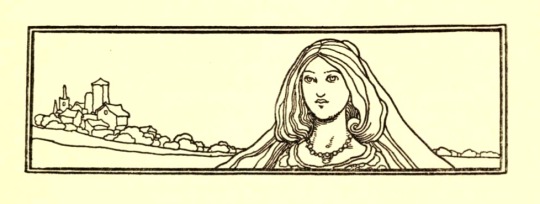
Morwen of Lossarnach, also called Steelsheen, descended from the Princes of Dol Amroth and became Queen Consort to King Thengel of Rohan. Unfortunately Tolkien doesn't say much about her.
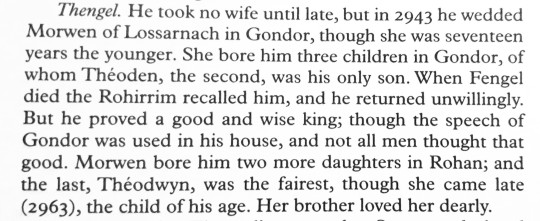
Besides this quote Tolkien writes that Éowyn bears a resemblence to her grandmother Morwen and their shared Gondorian ancestry.
J.R.R. Tolkien: The Lord of the Rings, Appendix A, the House of Eol.
Illustration by W. Heath Robinson.
Published in: The Poems of Edgar Allan Poe. London/ New York 1900.
#tolkien#j. r. r. tolkien#lotr#the lord of the rings#quote#thengel#morwen of lossarnach#morwen steelsheen#lotr appendix a#gondor#eowyn#w. heath robinson#illustration#rohan#house of eol#women in lotr#women in tolkien's writing#women in tolkien's universe
6 notes
·
View notes
Text
Aragorn and Eowyn are closer related than Aragorn and Arwen
Human genetics travel. They seriously get places, especially when we factor in that so elusive female line.
Eowyns maternal grandmother is a Dunedain lady named Morwen of Lossarnach, afterwards the Queen of Rohan. She is from an elite Gondorian family, the cadet branch of the Princes of Dol Amroth. The same family Denethor's wife Finduilas hails from.
Seeing that aristocratic families often marry within the same elite social circle, it is almost positive that at least royal princess married into the Dol Amroth family. Also that a Dol Amrothian lady is a direct forbear of the Gondorian line of kings.
Aragorn is descended from the Gondorian royal house from Princess Firiel daughter of King Ondoher about 14 generations ago. To put this into perspective you are 15th cousins at the least with the most distantly related member of the same ethnicity as yourself. And 50th cousins at most remove with the least related to you human on the planet.
Within Firiel is the genes of most of Gondorian aristocratic houses. It does not matter for instance if her mother was from Dol Amroth or if her grandmother was one of a pair of sisters who married into the Royal house and the House of Dol Amroth respectively. Or if Firiels first cousin was the forbear of the lords of Lebennin for instance, and a daughter would eventually wind up as Morwen's maternal or paternal foremother. Simply due to the exponentially large amount of ancestors every individual has and the massive amount of generations between Aragorn and these forbears. So that makes Eowyn and Aragorn at least 15th cousins if not closer. Their shared common ancestor probably lived 1300 years ago. Compare this to Aragorn and Arwen who's common ancestors Elwing and Earendil had their children about 6 millennia ago.
Also Faramir and Eowyn are 5th cousins at most.
Faramirs mother Finduilas, and Eowyns Grandmother Morwen are from the same family, the Princely house of Dol Amroth, though Morwen's father was not the Prince but a younger son of the line. Morwen and Faramir' grandfather Adrahil are contemporaries. The impression is they are not first cousins, but much further distant the prestige of association with the house would fade. So I would place Morwens grandfather as the you get brother of Aglahad, her father as first cousins to Angelimir. Morwen herself as second cousin to Adrahil, and their respective grandchildren as fourth cousins. Maybe fifth cousins if you want to add another generation of separation. At any rate the relationship was close enough that Prince Imrahil acknowledged Eomer as a kinsman.
#lotr#Gondor#Noble Houses#Royal Marriages#Aragorn#Aragorn's lineage#Firiel#Morwen of Lossarnach#Queen Morwen of Rohan#Eowyn#Dunedain Inbreeding#Dunedain#Arwen#Eomer#Imrahil#Finduilas#Faramir#Dol Amroth#Princes of Dol Amroth#adrahil
13 notes
·
View notes
Photo

Morwen Steelsheen, 2020, digital art
https://www.redbubble.com/shop/ap/59440708
My second request fanart piece, this one for @heckofabecca, and I love it! I had been considering doing a Morwen piece but kept putting off actually doing it. I have to thank her for the push to get it done!
I love my followers and supporters so much, and I’m so honored by all the attention this little blog has gotten so far.
If anyone else has any requests or suggestions, hit me up with them!
#morwen#morwen steelsheen#queen of rohan#rohan#rohirrim#lotr#lord of the rings#lotr fanart#lord of the rings fanart#lord of the rings inspired art#tolkien fanart#tolkien inspired art#tolkien inspired#edoras#meduseld#medieval inspired art#medieval#medieval queen#queen of gondor#princess#lady
68 notes
·
View notes
Note
Would you mind talking a bit more about Theodred? I loved your headcanons, by the way! Do you think he would have gotten a lot of attention from the women of Rohan who were interested in him simply because he was a prince? And what kind of high standards, in your opinion, did he have when it came to finding a wife and a queen? What kind of qualities would he be looking for? Thank you so much!
Thank you so much, Anon! I appreciate your kind words and high praise, since I am no expert on Rohan (or the race of Men), but I try my best in my contributions. :)
More Théodred Headcanons! (SotWK AU-based, of course)
Elfhild, Théodred's beloved mother, was a full-blooded Rohirrim from a barely above middle-class family. Her marriage to Théoden was a successful love match. Although Elfhild passed away (at childbirth) before Théodred got the chance to know her, he heard endless stories from both high-born and common folk about her kindness, wisdom, and strength, and he idolized her.
Théodred was also often told of how much Idis took after their mother. As a result, he looked up to his sister (who was 5 years his senior) and modeled her good examples, particularly her humility, gentleness, and dedication to the welfare of their people.
What qualities did Théodred look for in a wife/Queen? Someone like his mother and sister (see above). Definitely tough shoes to fill!
All the people of Rohan LOVED Théodred. They respected and trusted him as though he were already their king, and would have followed him to any battlefield, to any end. Full of wisdom and integrity, he could not be corrupted as easily as his father. This made him very dangerous in Saruman's eyes, which was why the White Wizard could not allow him to live.
What set Théodred apart from his forebears was his more pacifist, less militant nature. He had a generous and forgiving heart and would choose mercy over vengeance. He was loathe to jump into battle or start wars, for as long as it could be avoided. Saruman used this quality (I hate to call it weakness) against him.
He definitely drew a lot of attention from the women of Rohan; pretty much all of them were smitten with the Prince. If a poll had been taken, he would easily have beaten out Éomer as the most desirable husband. And this was not because of his princely status; his genteel nature simply made him more approachable.
In his pursuit of a wife, Théodred's rank as heir to the throne actually worked against him. The few women he entered into serious relationships with could not handle the pressure of being measured against a man so adored and placed high on a pedestal. Théodred was always gentle and encouraging towards his potential Queens, but his zeal for work and determination to serve and put Rohan above all else ended up intimidating them all. How does one keep up with a saint??
(Here is where my HC may get controversial.) If there were women who pursued Théodred for his title, they were noblewomen of Gondor, driven either by their own ambitions or that of their parents or lords. The chance to rise to the Queenship of Rohan by marriage like Morwen Steelsheen famously did, was probably tempting to many noble houses. It fact, it was another Morwen (daughter of Húrin the Tall,) who came closest to a betrothal with Théodred. But when Théodred realized that a Gondorian wife would have principles too different from his own when it came to governing Rohan, he began to dismiss all political matches pushed before him, which diminished his options even more.

SotWK Fancast: Charlie Hunnam as Théodred

Thank you again for the Ask, Anon! I am grateful there are folks like you who care about my thoughts and keep me encouraged. <3
#sotwk answers#anon asks#i have the best anons#theodred#rohan#rohirrim#eomer#lord of the rings#theoden#lotr#sotwk headcanon#sotwk ocs
18 notes
·
View notes
Photo




Some Morwen Steelsheen pictures from Ren Fest!
I want to do a proper shoot sometime. Maybe this winter with my sister, but it was fun to take a few pics in my outfit pretending to be the beautiful Queen of Rohan.
There will be pictures to come, though (as per usual) of Kristen getting drunk and throwing weapons at Ren Fest!
#morwen steelsheen#tolkien#queen of rohan#mother of theoden#morwen steelsheen cosplay#other tags#maryland renaissance festival
24 notes
·
View notes
Note
Here's an interesting fucked up 'what if' LotR scenario my brain came up with while I was trying to sleep last night. Something I figured you might find thought provoking as well.
Apologies for the long post, and I'll preface it all by saying I based this on the movies only - I've never read the actual books.
What if Grima Wormtongue wasn't just Theoden's counsellor, but also his illegitimate child?
It happened when Theoden was young - before he married Elfhild, and before Theodred was born. Grima was Theoden's firstborn.
He wanted to acknowledge Grima as his son, but couldn't, because this could have given Grima a claim to the throne, and his parents wanted his heir to be the child of his upcoming marriage to Elfhild, which was then being arranged. Queen Morwen made it clear that by-blow sons from lowborn country girls do not future kings make. Or, maybe Grima's mother was foreign-born (hence the dark hair) and the Rohirrim were a bit xenophobic and wanted a nice, blonde boy as their heir instead.
Theoden took care of Grima. He arranged for him to be educated, then brought him to court and gave him a good job with influence and authority - something appropriate for a King's son.
He never publicly acknowledged Grima, even in his later years, but everyone in Theoden's inner circle knew the truth.
This is why Grima became Theoden's right-hand man, and gained 'undue' influence over him. Everyone just looked at the setup and said 'well, that's the King's secret son, he's just helping his old man out, it's totally fine'.
Not helped by the fact that Theodred wasn't much interested in the business of running the kingdom, and preferred to spend his time hunting or chasing pretty girls (my headcanon), so Grima stepped into the gap that Theodred should have filled.
Saruman knew as well. He sought Grima out, whispered in his ear, persuaded him to act on feelings he'd previously kept to himself.
Grima sold out to Saruman because he resented his position, and his lack of recognition. As the eldest son, he thought he should be Theoden's heir. His parentage and birth status shouldn't matter.
This is why Grima 'assisted' Theodred's death in The Two Towers. Not just to weaken Rohan and further Saruman's plans - to get rid of the competition - the half brother who had everything he didn't.
It's also why Grima had his eye on Eowyn. Not just because she was young and beautiful - also because she was highborn and of the royal line, so a marriage to her would strengthen his claim to the throne. Think Henry VII of England marrying Elizabeth of York.
It's why Grima cried when he saw Saruman's army at Isengard - he realized he was about to be party to his own people's destruction. He's angry at being excluded, but not THAT angry.
Aragorn knew, because he was around when Theoden's thing with Grima's mother happened. It's why Aragorn stopped Theoden from killing Grima on the steps of Meduseld - fathers should never have to kill their sons, even when many would say doing so was justified.
Saruman's comment to Theoden at Isengard has two meanings now. Theoden's not the only man there who's the 'lesser son of a greater sire' - he means Grima as well.
It's why Theoden offered Grima mercy at Isengard, reminded him he was a man of Rohan, asked him to come back, instead of just writing him off. One last appeal from father to son.
It's why Grima attacked Saruman - one last moment of loyalty to his father and his King.
I freely admit this is all totally whack, but if it's okay to write a story where Aragorn meets Harry Potter, why not an AU like this?
I might actually try to write this one day, just for shits and giggles :)
So first, I love all of this and I am here for Bastard Son!Grima. He's out here to have conflicted emotions, a desire for a Family and Acceptance, hurt everyone around him, and to make some of the world's worst decisions.
Also, I feel like there's no need for things to be, idk, "believable" in fanfic re: premise. The whackier the premise the better - because then the characters have to react and it's a fun challenge to be like "so how would Theoden, as we know him, react in this situation wherein he's been betrayed by his son who he loves but also never really was able to demonstrate that to" etc.
and tbf we know literally nothing about Grima's background aside from his father's name - but that can be smudged/a reference to a grandfather/whatever (also Galmod means lust/desire so Grima being a by-blow resulting from Theoden's desire...) - so this is no more crazy than literally anyone else's theory on the matter.
Naturally I think you should write it! I would read the heck out of it.
<3 <3 <3
12 notes
·
View notes
Text
So I’ve been thinking about Éowyn’s relationship with Rohan.
She’s strongly aligned with Rohan in the main text of LOTR. For instance, when she faces the Witch-king after identifying herself, we hear:
Still she did not blench: maiden of the Rohirrim, child of kings, slender but as a steel-blade, fair yet terrible.
Despite her substantial Númenórean ancestry, this is how she describes her background to Faramir:
“Then must I leave my own people, man of Gondor?” she said. “And would you have your proud folk say of you: ‘There goes a lord who tamed a wild shieldmaiden of the North! Was there no woman of the race of Númenor to choose?”
As far as I can tell, Éowyn identifies wholly as one of the Rohirrim and definitely thinks of herself as non-Númenórean. Fandom brings up her grandmother’s ancestry pretty often, but it doesn’t seem to factor into Éowyn’s identity or presentation in the body of LOTR; it’s not until the Appendices that she’s associated with Morwen in any way at all.
At the same time, a lot of her attraction to Aragorn is wrapped up in her desire to escape Rohan and what it’s come to represent for her—a place where she feels caged and trapped. As Gandalf says,
“But who knows what she spoke to the darkness, alone, in the bitter watches of the night, when all her life seemed shrinking, and the walls of her bower closing in about her, a hutch to trammel some wild thing in?”
Aragorn himself says:
“I say to you that she loves you [Éomer] more truly than me; for you she loves and knows; but in me she loves only a shadow and a thought: a hope of glory and great deeds, and lands far from the fields of Rohan.”
Éowyn didn’t just desire to be a queen, but to be a queen away from Rohan. Of course, that desire ultimately shifts, or she realizes that it wasn’t what she truly wanted, and it was tied to a specific phase of her life in Rohan. But I do wonder what she thinks and feels about Rohan at the end of the day, when her marriage does take her far from the fields of Rohan and make her, let’s be real, the next thing to a queen.
How does Éowyn feel about Rohan as she prepares for her marriage? How does she feel after it, in Ithilien? How does that feeling factor into the way she chooses to go about her life as a Gondorian princess? I feel like it could actually be very complex for her.
#i have my headcanons but i'm not honestly that sure of them#in this respect#anghraine babbles#éowyn#lord of the rings#legendarium blogging#long post#gandalf#aragorn#faramir#otp: and the sun shone#tangentially but...#rohan
121 notes
·
View notes
Photo
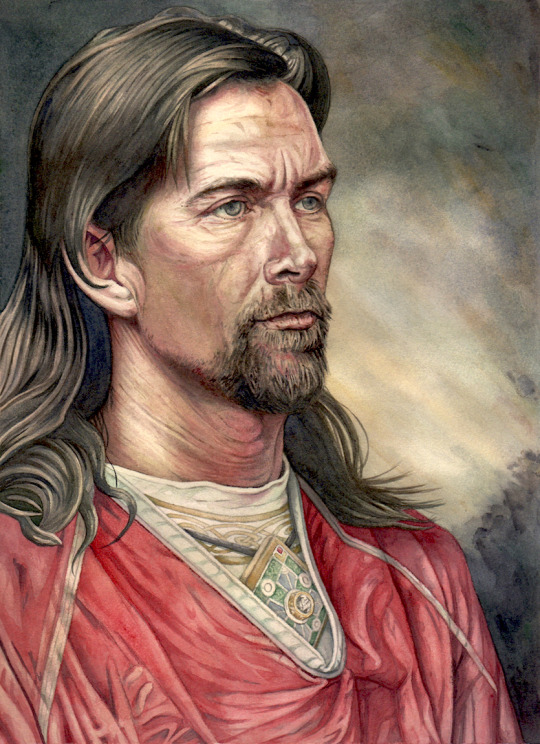
Bregolas by peet
'The son of Boromir was Bregor, whose sons were Bregolas and Barahir ...' J.R.R. Tolkien: The Silmarillion: Chapter 17: Of the Coming of Men into the West

'In the time that followed Túrin grew high in favour with Orodreth, and well-nigh all hearts were turned to him in Nargothrond. For he was young, and only now reached his full manhood; and he was in truth the son of Morwen Eledhwen to look upon: dark-haired and pale-skinned, with grey eyes, and his face more beautiful than any other among mortal Men, in the Elder Days. His speech and bearing were that of the ancient kingdom of Doriath, and even among the Elves he might be taken for one from the great houses of the Noldor; therefore many called him Adanedhel, the Elf-Man.' JRR Tolkien: The Silmarillion: Chaper 21: Of Túrin Turambar

Cirdan, Lord of the Falathrimby peet
'Some [Ossë] persuaded to remain; and those were the Falathrim, the Elves of the Falas, who in after days had dwellings at the havens of Brithombar and Eglarest, the first mariners in Middle-earth and the first makers of ships. Círdan the Shipwright was their lord.'
JRR Tolkien: The Silmarillion: Chapter 5: Of Eldamar and the Princes of the Eldalië
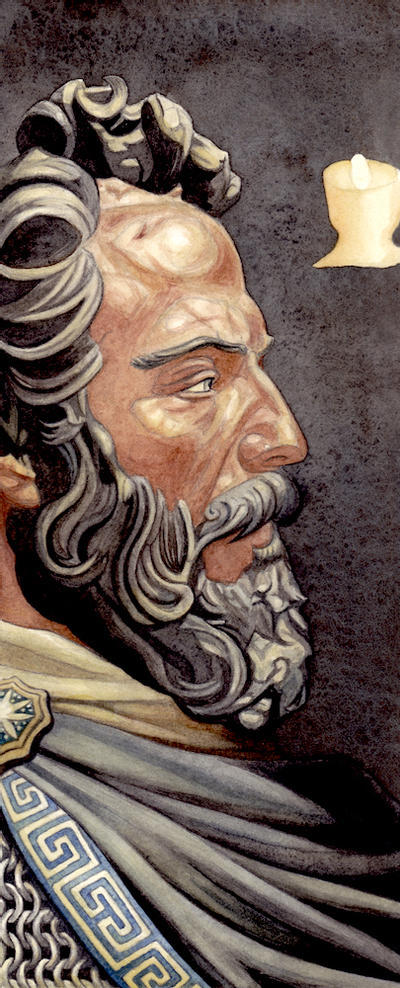
Hurin of the Keys by peet
'Is there no deed to do?' she said. 'Who commands in this City?' 'I do not rightly know,' he answered. 'Such things are not my care. There is a marshal over the Riders of Rohan; and the Lord Húrin, I am told, commands the men of Gondor. But the Lord Faramir is by right the Steward of the City.'
JRR Tolkien: The Lord of the Rings: The Return of the King: Book VI, Chapter 5: The Steward and the King

Olorin by peet
'Wisest of the Maiar was Olórin. He too dwelt in Lórien, but his ways took him often to the house of Nienna, and of her he learned pity and patience. Of Melian much is told in the Quenta Silmarillion. But of Olórin that tale does not speak; for though he loved the Elves, he walked among them unseen, or in form as one of them, and they did not know whence came the fair visions or the promptings of wisdom that he put into their hearts. In later days he was the friend of all the Children of Ilúvatar, and took pity on their sorrows; and those who listened to him awoke from despair and put away the imaginations of darkness.' JRR Tolkien: The Silmarillion: VALAQUENTA: Account of the Valar and Maiar according to the lore of the Eldar

Nerdanel the Wise by peet
'While still in his early youth he wedded Nerdanel, the daughter of a great smith named Mahtan, among those of the Noldor most dear to Aulë; and of Mahtan he learned much of the making of things in metal and in stone. Nerdanel also was firm of will, but more patient than Fëanor, desiring to understand minds rather than to master them, and at first she restrained him when the fire of his heart grew too hot; but his later deeds grieved her, and they became estranged.'
JRR Tolkien: The Silmarillion: Chapter 6: Of Fëanor and the Unchaining of Melkor

Feanor's Betrayal at Losgar by peet
‘Then Fëanor laughed as one fey, and he cried: ‘None and none! What I have left behind I count now no loss; needless baggage on the road it has proved. Let those that cursed my name, curse me still, and whine their way back to the cages of the Valar! Let the ships burn!’ JRR Tolkien: The Silmarillion: Chapter 9: Of the Flight of the Noldor
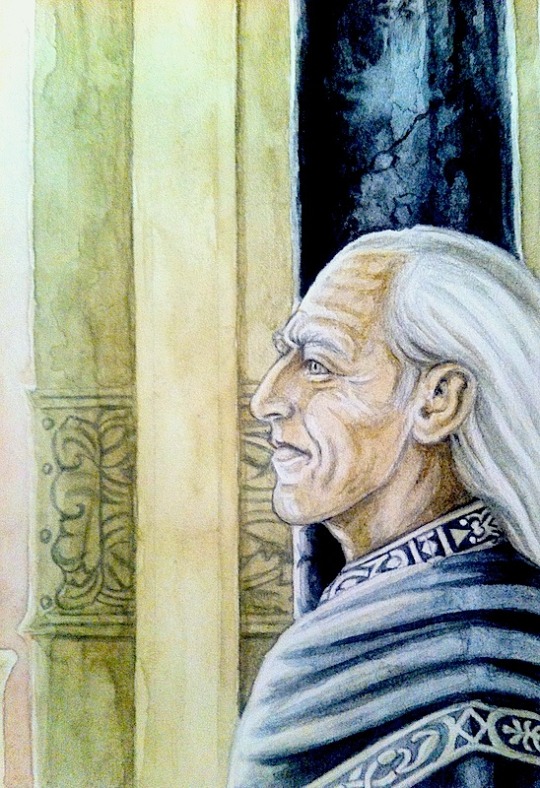
Lord Denethor by peet
'Hail, Lord and Steward of Minas Tirith, Denethor son of Ecthelion! I am come with counsel and tidings in this dark hour.'Then the old man looked up. Pippin saw his carven face with its proud bones and skin like ivory, and the long curved nose between the dark deep eyes; and he was reminded not so much of Boromir as of Aragorn. 'Dark indeed is the hour,' said the old man, 'and at such times you are wont to come, Mithrandir. But though all the signs forebode that the doom of Gondor is drawing nigh, less now to me is that darkness than my own darkness.'
JRR Tolkien: The Lord of the Rings: The Return of the King: Book V, Chapter 1: Minas Tirith

Queen Beruthiel by peet
''Do not be afraid!' said Aragorn. There was a pause longer than usual, and Gandalf and Gimli were whispering together; the others were crowded behind, waiting anxiously. 'Do not be afraid! I have been with him on many a journey, if never on one so dark; and there are tales of Rivendell of greater deeds of his than any that I have seen. He will not go astray - if there is any path to find. He has led us in here against our fears, but he will lead us out again, at whatever cost to himself. He is surer of finding the way home in a blind night than the cats of Queen Berúthiel.'' JRR Tolkien: The Lord of the Rings: The Fellowship of the Ring: Book II, Chapter 4: A Journey in the Dark

Isildur Healed by peet
'But Isildur came at last hardly back to Rómenna and delivered the fruit to the hands of Amandil, ere his strength failed him. Then the fruit was planted in secret, and it was blessed by Amandil; and a shoot arose from it and sprouted in the spring. But when its first leaf opened then Isildur, who had lain long and come near to death, arose and was troubled no more by his wounds.' JRR Tolkien: The Silmarillion: AKALLEBÊTH: The Downfall of Númenór
#tolkien#jrrt#jrr tolkien#the silmarilion#silmarillion#The Lord of the Rings#lord of the rings#lotr#elves#bregolas#isildur#Turin Turambar#beruthiel#denethor#feanor#Nerdanel#Hurin from Keys#gandalf#olorin
141 notes
·
View notes
Photo
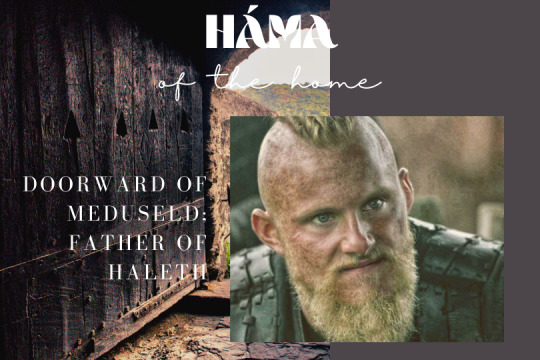


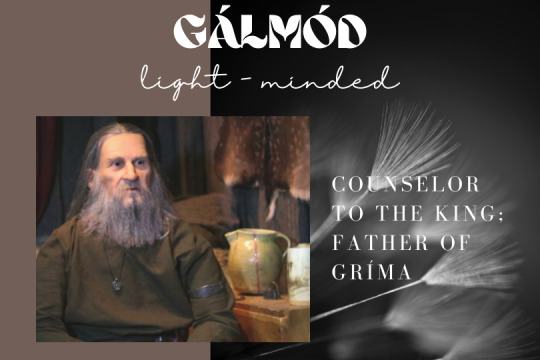
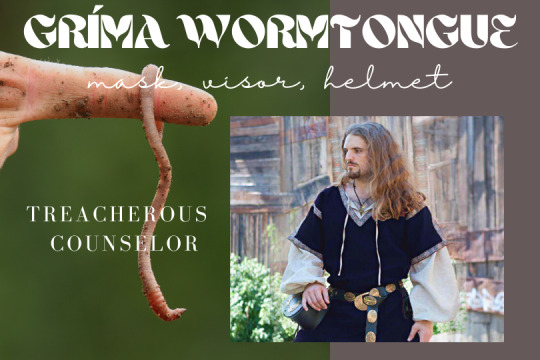
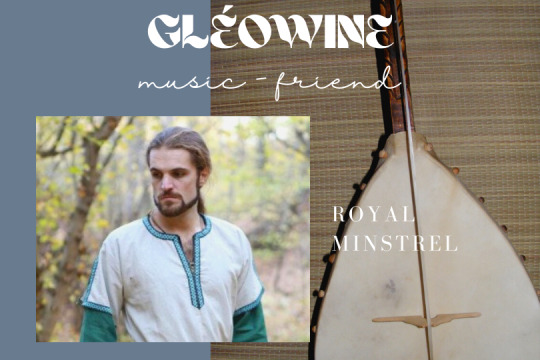
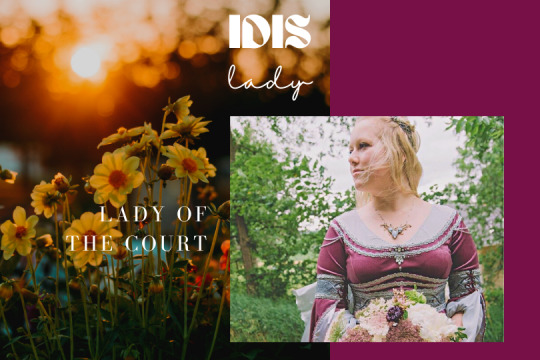
men of middle-earth ❅ northmen ❅ headcanon disclaimer
Ealdor was the seneschal of Edoras, an old man in the time of the Lord of the Rings, though in his youth he had been strong and doughty, a great hunter and falconer. He served as a mentor to Háma, the doorward of Meduseld, who learned from Ealdor how to anticipate the moods of the King. Yet this was only so helpful when Théoden King was ensorcelled by Gríma Wormtongue, the treacherous son of the much wiser and nobler counselor Gálmód. Nonetheless, Háma abided by the rules of the King’s House when Aragorn, Gimli, Legolas, and Gandalf arrived at the Golden Hall, insisting they surrender their weapons before seeing the King. Yet in his heart, Háma was grieved at Théoden’s fall, and chose to allow Gandalf to keep his staff despite knowing of the wizard’s power with such a tool. This decision allowed for Gandalf to throw off the enchantments of Saruman from Théoden and send Gríma scuttling back to his true master, but Théoden still could not let this oversight go unreprimanded, and Háma was temporary relieved from his position as the doorguard. Háma then released the King’s sister-son Éomer from captivity, arrested Gríma, and recovered the King’s sword Herugrim from Gríma’s hoard. Háma was loyal to his king to the last, riding with him to the Hornburg and falling before its great gate in the ensuing battle. Théoden deeply grieved the loss of his faithful companion, and buried him in great honor under the shadow of the Hornburg, Personally casting the first earth on his grave. After the War of the Ring, Háma’s orphaned son Haleth was taken under King Éomer Éadig’s wing as his squire, in honor of his father’s noble memory. Despite Háma’s efforts, Gríma Wormtongue fled to Saruman after Théoden’s mind was freed from thralldom, and he informed his master of all he had learned while spying for him in Meduseld. He had not been the most faithful of servants, having revealed Saruman’s double-crossing of Sauron when the Nazgûl came to Rohan, though he attempted to conceal this betrayal from Saruman. When Gandalf rode to Isengard to confront Saruman, Gríma threw a “heavy rock” at him, which was actually the palantír of Orthanc, a precious artefact, and for its loss Saruman punished him severely. Exiled from Isengard, Saruman and Gríma travelled westward in the guise of beggars, eventually reaching the Shire, where Saruman had been quietly exerting his control under the name “Sharkey.” By the time of their arrival, Gríma had become so degraded and wretched that Saruman shortened his nickname to “Worm” in derision. Under his master’s orders, Worm killed Lotho Sackville-Baggins, and may have eaten him; yet his hatred for Saruman only grew, until it overwhelmed his fear and he was spurred to action by the words of Frodo Baggins after Sharkey’s defeat, slitting his oppressor’s throat and darting down the road. Thus Gríma Wormtongue found his final escape: not through flight out of the Shire, but into death, as hobbitish arrows found their mark, making him the final casualty of the War of the Ring. Gríma’s dreadful actions were shamed by those Rohirrim who remembered him, but many others who died in the War were greatly honored in songs and poems. The Song of the Mounds of Mundburg honored those who fell in the Battle of the Pelennor Fields, and the minstrel Gléowine immortalized Théoden King in his own song, though only the last stanza survived into history. That the whole poem was not lost was thanks to his niece Idis, a woman of the court who became a handmaiden to Queen Lothíriel. Idis was a dear friend to her queen, helping her and her Gondorian handmaidens adjust to their new life in Meduseld, and she grew especially close to Lothíriel’s friend Morwen, and after an extended courtship, the two ladies were wed in a great celebration organized by the Queen herself.
#tolkienedit#oneringnet#lotr#rohirrim#hama#haleth hamasson#ealdor#galdor of rohan#galmod#grima wormtongue#grima#gleowine#idis#my edit#my writing#edit writing#headcanons#tefain nin#men of middle earth#northmen
27 notes
·
View notes
Note
What do you think Hurin’s relationship with Idril and Turgon was? You’ve said they weren’t close but I am interested to see how Húrin’s later ask to come back to gondolin is rejected was received in Gondolin especially since Tuor was there, like Tuor was robbed of the one moment he ever may have had to meet the last person on earth who ever knew his biological father and mother. Or to ask what his name meant, since it’s untranslated taliska (*I think)
Plus, earendil wanted to be a man, like human, how did his parents take that? Or what was Tuor opinion on his much more important and beloved (culturally by other men) cousin, the fatally cursed Túrin Turambar? It must be a crushing shadow to live under: well, maybe not in Valinor but middle earth men seem to like him a lot, even Rohan had a queen named Morwen.
Sorry this is long. I like your work. It’s well written! 🤍
Thank you! Thank you! fuck I'm so excited for this question
okay, have a slightly disorganized answer, because I'm gonna try and tackle all of these points sort of in the order you raised them
I think Idril and Turgon got along fine with Húrin. Like I said before it's hard for him to consider himself smitten with Gondolin the way Huor (who in my headcanons always dreamed of a world without war) is, because he's got a woman he loves waiting for him back home, and a series of duties he can't ignore. He's significantly more practical than his brother in that regard. He was loyal to Turgon but more personally loyal to Fingon, who called him friend; his affection for the King of Ondolindë was more because he was fond of said King's older brother. Still, he never deserted anyone he called friend, which is why he held out so long as he did under torture and earned himself a curse. (Side note, but the Grey Annals has this great exchange between Húrin and Morgoth where Húrin tells the Dark Enemy of the World "you're a weakass piece of shit, you couldn't successfully torture my nine-year-old", and just. the balls on that man. holy fuck.)
In my opinion, Turukáno rejected Húrin because he was afraid that helping Húrin would lead to Gondolin being discovered. He acted out of cowardice, and I think he kind of hated himself for it. I don't think Tuor knew, truly, about Turukáno's decision - I think he heard the cry, and he heard vague rumors about what it might have meant, but he would have been busy establishing the House of the Wing for his looming wedding to Idril, and we also don't know if Turukáno told anybody of what he knew regarding Húrin seeking entry. I think that had Idril and Tuor known about it with any certainty (Idril's prophecies and eyes aren't omniscient and all-seeing) they would have taken action regardless of what the King said or didn't say, and I also think that probably Aldaron and Laurëfindil and Aegthel went looking for Húrin some time later but he'd already departed. The thing is that it hurts - Tuor was robbed of the last person on Earth who might have given him any information about his people, his parents, the culture of Dor-lómin and his Bëorian heritage. At least Túrin got to hear about Beren, and got to grow up for a while with both his mom and dad, and got to go to Nargothrond with its long-standing cultural ties to the House of Bëor. Tuor didn't even have any connection to the language that was used in his name. You're right that it's untranslated Taliska, though 'Tuor' is a Sindarinization - it's actually something like 'Tughor', I think, though I might be wrong.
That being said I think Tuor is happy. He's like his parents - he's a dreamer, he's gentle, he's kind, and on top of that despite his traumas he found joy and peace and a purpose beyond lost family ties and missing cultural heritage. I think he's really okay with how his life turned out, because he has a wife and a son and a family, and Turukáno is said to see him as a son too.
Plus, I think he was very happy about the fact that Eärendil was proud of his humanity, and I think Eärendil was very excited to tell his parents and anyone who listened that he would grow up to be a Man. We don't know how Idril felt, really, but tbh I can't see her resenting her son for this when she willingly wed a mortal knowing he would age and die and she would outlive him - she doesn't seem to resent him at all, or curse fate, and Tuor isn't consumed by doubt and misery either.
Re: Túrin - I think Tuor, if he had the opportunity, would be angry that his cousin had such a miserable life, and suffered as he did, and was robbed of happiness and peace. I think he'd be furious on his kinsman's behalf, and offer to fight alongside Túrin should Morgoth need curbstomping again. As to legacy, though - Túrin is an important figure to later Men, standing against the darkness in a uniquely Mannish way and doing things that are meaningful in later Ages, and it's almost as if he had a shitty life but a splendid death, as opposed to Tuor, who had a rough life that became wonderful and then quietly dropped out of history never to be seen again, coming to an uncertain end. If you were to ask him, I don't think he'd see his lot as unfair, because it's not fair that someone like Túrin be shouldered with such a curse.
35 notes
·
View notes